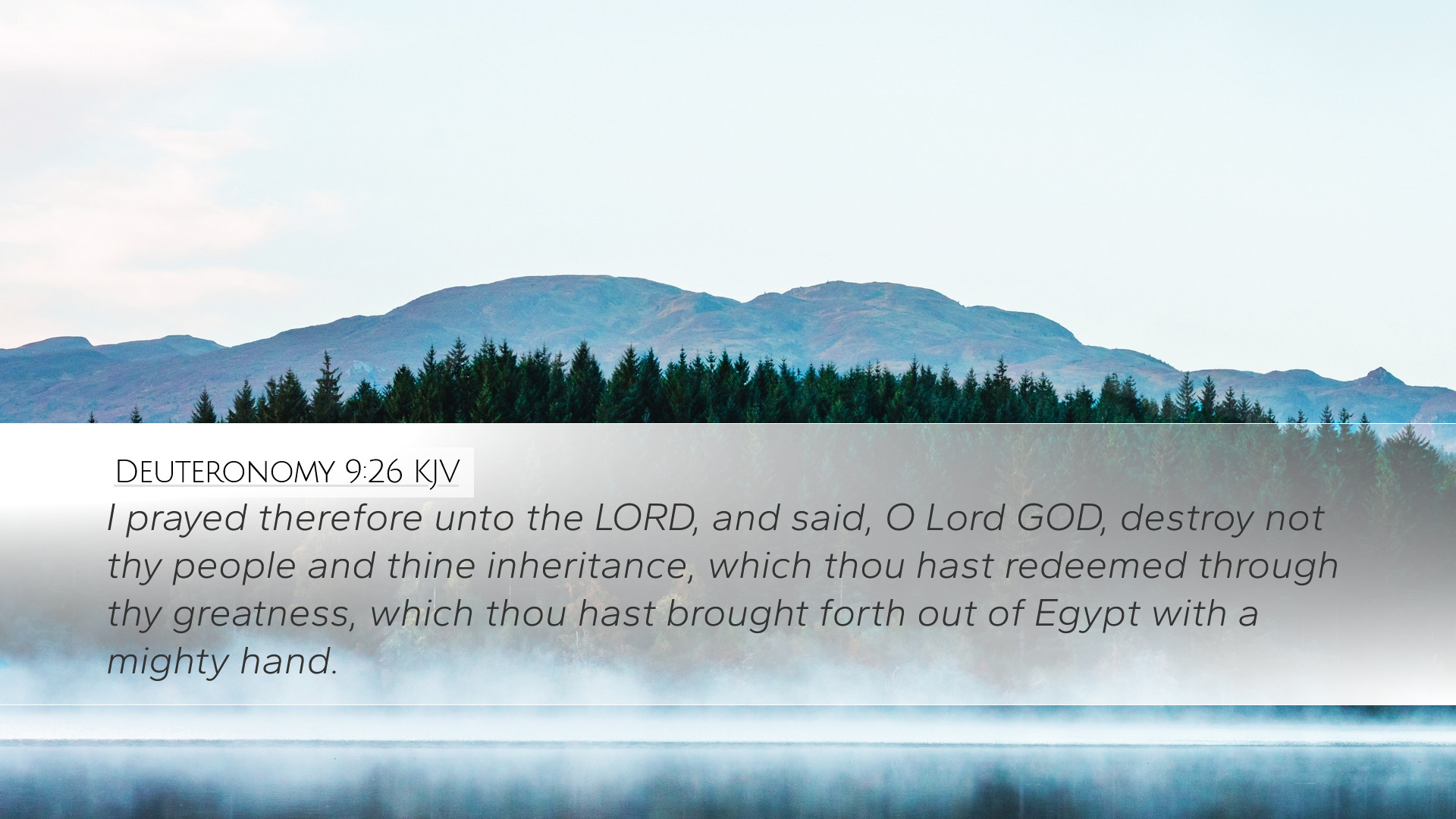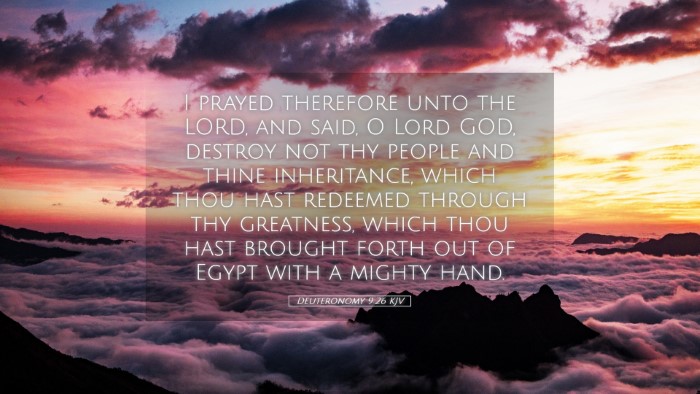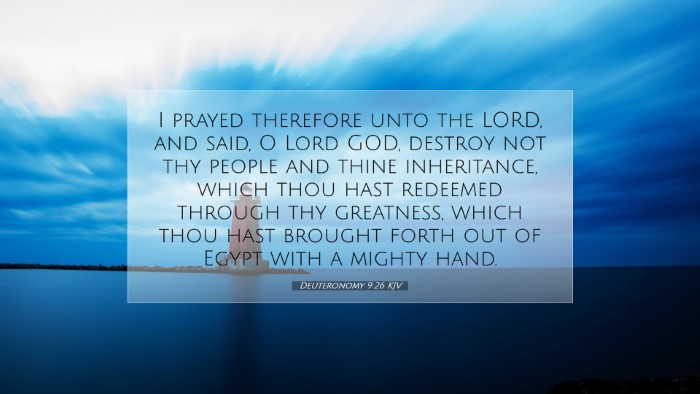Commentary on Deuteronomy 9:26
Deuteronomy 9:26 states, "I prayed to the Lord and said, O Lord, do not destroy your people, your inheritance that you redeemed through your greatness, whom you brought out of Egypt with a mighty hand." This verse emerges from a critical juncture in Israel's narrative where Moses intercedes for the people after their sin of idolatry. It exemplifies themes of intercession, divine mercy, and the enduring covenant between God and His people.
Contextual Background
To fully appreciate the significance of this verse, one must consider the broader context of Deuteronomy. This book serves as Moses' farewell address, recapitulating the law and recounting Israel’s journey through the wilderness. In the preceding chapters, we see the people’s repeated rebelliousness against God’s commands, culminating in their construction of the golden calf. It is in this setting of disobedience that Moses offers his prayer on behalf of the nation.
Commentary Insights
Matthew Henry's Commentary
Matthew Henry emphasizes the heroic nature of Moses’ intercession for the Israelites. He argues that Moses, as a mediator, exemplifies the role of Christ as an intercessor for humanity. In his commentary, Henry notes, "Moses is not only a lawgiver but also a plea-maker before God, demonstrating deep concern for the spiritual welfare of his people." This highlights both the weight of leadership and the responsibility that comes with it. Moses reminds God of His covenant, showcasing God’s glory in the act of redemption.
Albert Barnes' Notes on the Bible
Albert Barnes provides an exposition on the significance of Moses reminding God of His redemptive work. He states that this act is more than mere rhetoric; it serves as a profound acknowledgment of God's promises. Barnes comments, "Moses’ appeal is grounded in the fact of redemption; he reminds God that these people are His inheritance, bought at a great price." This perspective reinforces the notion that God's relationship with Israel is marked by covenant fidelity and divine ownership. He argued that God’s glory is manifested not only in judgment but also in mercy, thereby encouraging intercessory prayer.
Adam Clarke's Commentary
Adam Clarke elaborates on the psychological and spiritual dynamics at play in Moses' prayer. He notes, "Moses appeals to God's character as the Redeemer and the God of mercy, hoping that this appeal would resonate with God's sense of justice and compassion." Clarke goes further, pointing out the tension between divine justice and mercy present in this text. His commentary illustrates how Moses acknowledges the gravity of the sin, yet firmly bases his plea on God’s nature. Furthermore, Clarke discusses how the phrase "your people" underlines the intimacy of the relationship between God and Israel, intimating that God’s judgment would affect not just the people, but His own glory.
Theological Implications
The theological implications of Deuteronomy 9:26 are vast and pertinent for both individual believers and the Church as a whole. The verse stresses the importance of intercession. It urges believers to take the role of advocates for one another, as Moses did. This is especially vital in modern contexts of moral failure and community sinfulness. Just as Moses concerns himself with the collective identity of Israel, pastors and leaders today are called to intercede with the same fervency for their congregations.
Application for Pastors and Theologians
Intercessory Role of Leaders
Pastors and church leaders are reminded through this verse of their significant role in intercessory prayer. Like Moses, they must navigate the challenges of leading a flawed congregation while continuously calling upon God’s mercy and grace. It emphasizes that effective leadership is characterized not just by authority but also by humility and advocacy in the presence of God.
The Cost of Redemption
The reminder that Israel is God’s precious possession—redeemed, not by silver or gold, but by the blood of redemption—challenges theological assertions about worth and value in divine relations. Understanding this helps pastors to articulate the costliness of grace and its implications for congregational life. Effective preaching should flow from God’s unwavering integrity as a Redeemer who desires relationship over ritual.
Conclusion
In summary, Deuteronomy 9:26 serves as a powerful testament to God’s mercy, the significance of intercessory prayer, and the covenantal bond that links God and His people. Through the insights gleaned from historical commentaries, faithful ministers can find both encouragement and responsibility in their call to lead and intercede. This verse serves as an eternal reminder that while humanity falters, God's willingness to save remains steadfast and unchanging, inviting continual dialogue between the heavens and earth.


